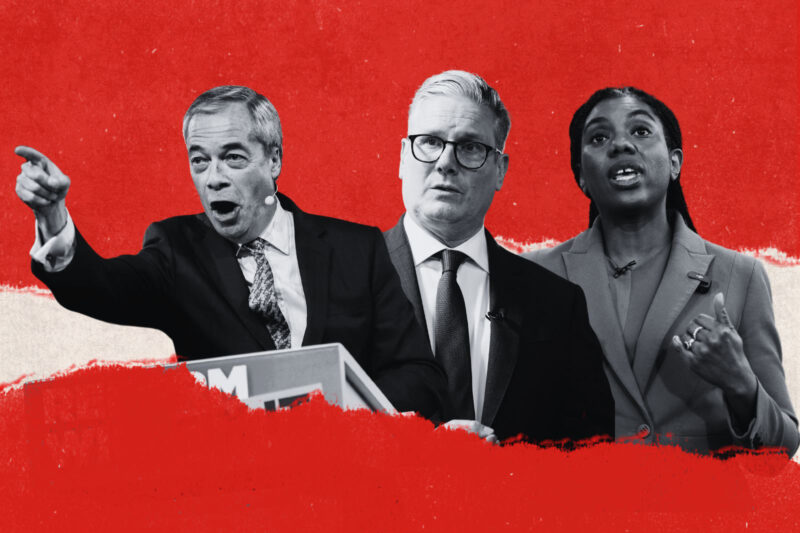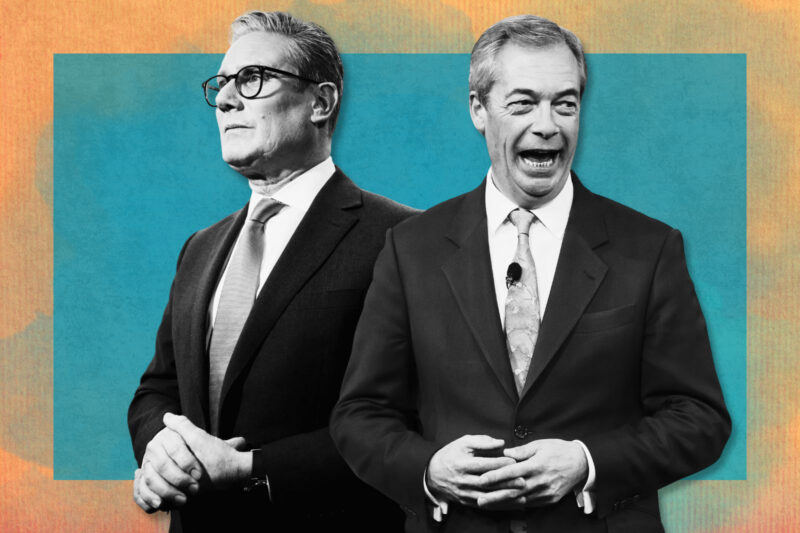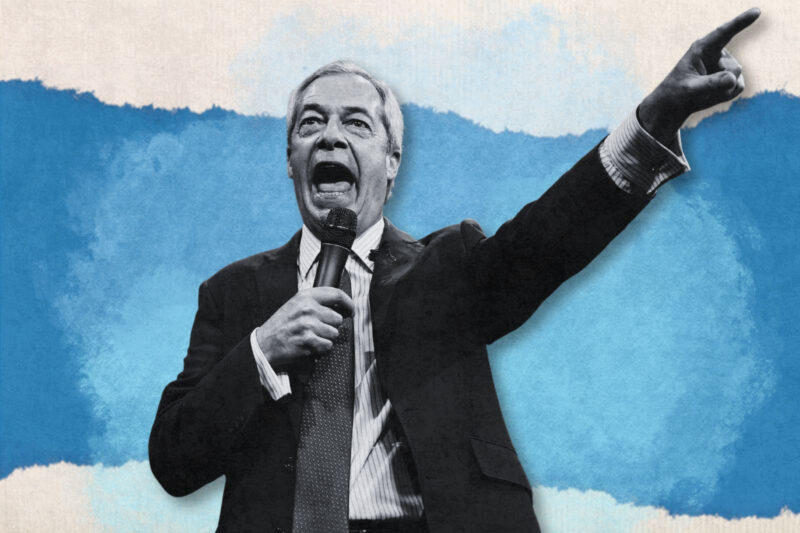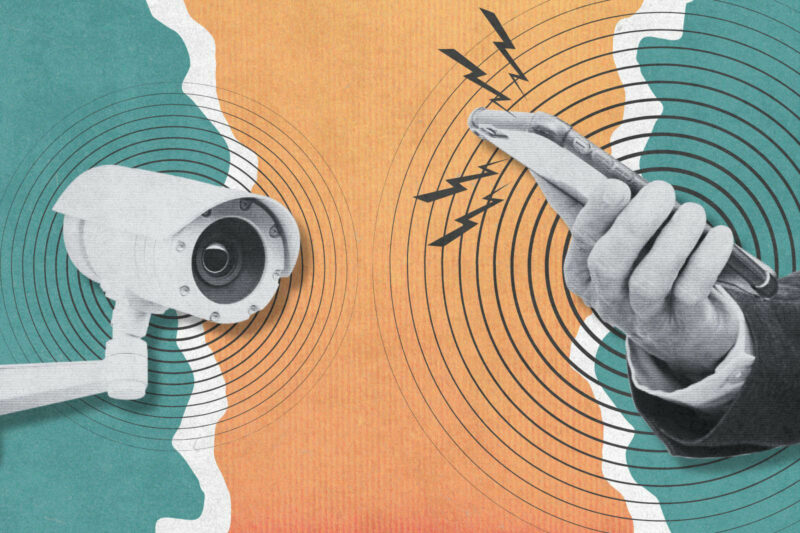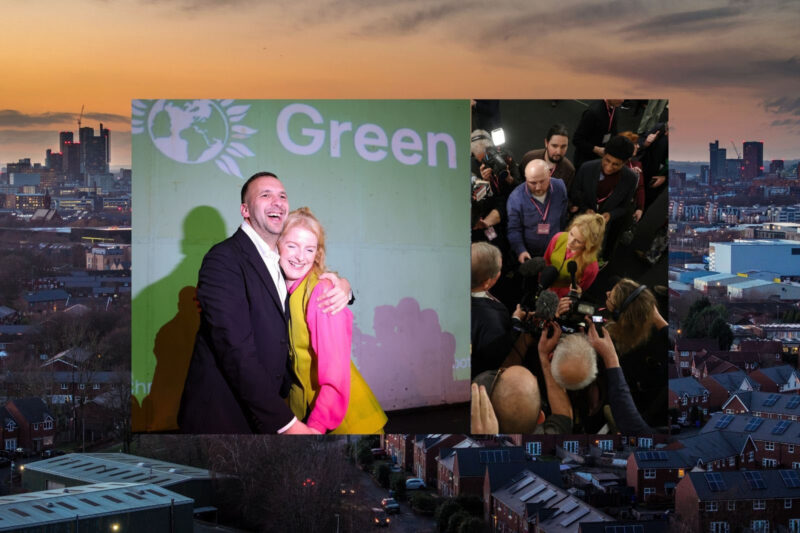Sunak will need to battle more than the elements in the general election
Labour has surged ahead in the polls and many voters want change, but the result should still not be taken for granted
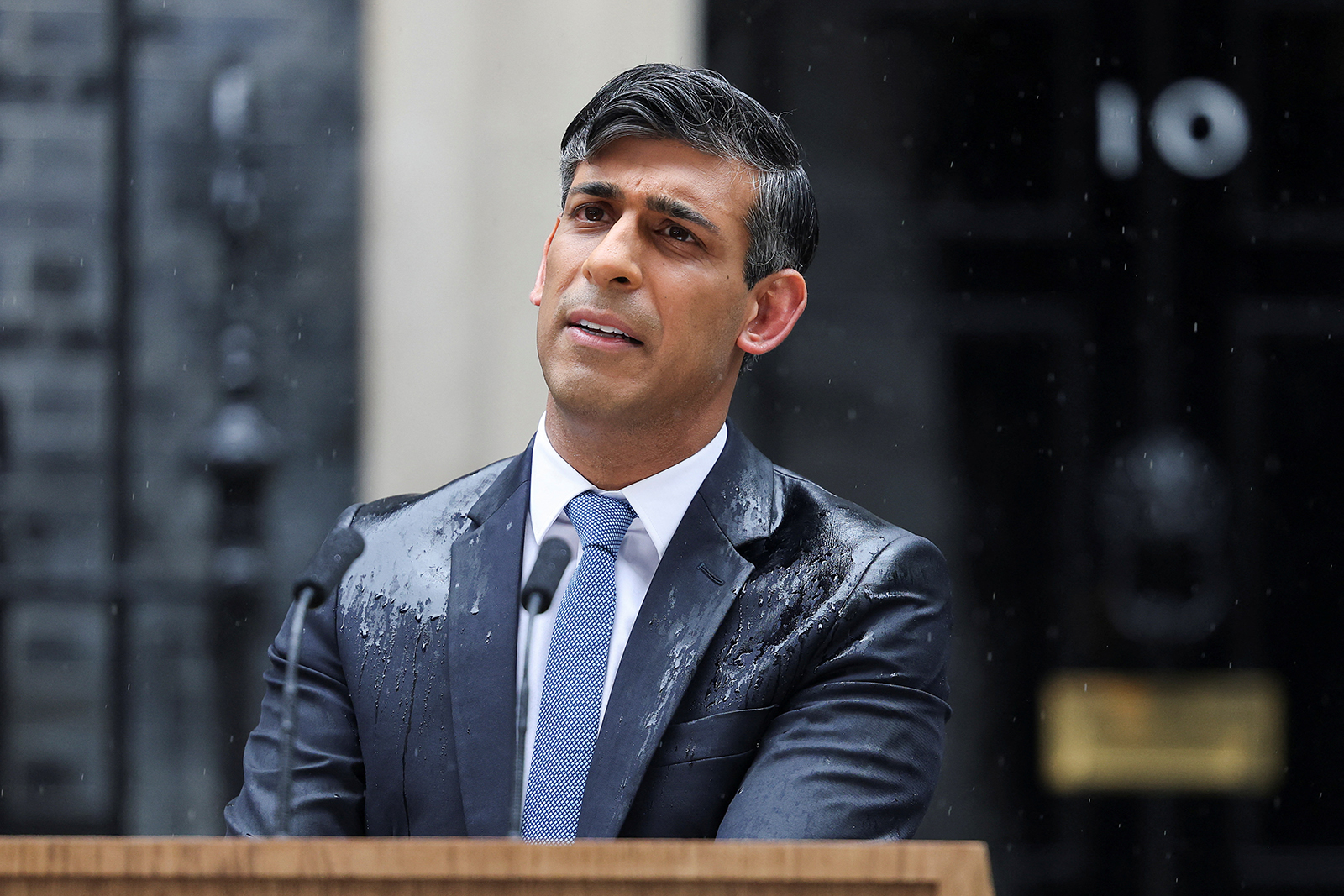
It wasn’t the most inspiring election announcement. On a torrential Wednesday afternoon, Prime Minister Rishi Sunak stood at a lectern on Downing Street soaked to the skin, his words almost drowned out by protesters blasting the New Labour anthem Things Can Only Get Better.
As political theatre goes, the scene was a long way from exuding the strength and stability incumbent leaders generally want to convey, but Sunak battled through the rain to call UK voters to the ballot box on 4 July. With the Conservative party standing 21 points behind Labour in the opinion polls, few had expected an election to come so soon but the PM clearly feels that this is his best chance to keep the keys to Number 10.
He has an almighty challenge ahead. The most recent MRP poll predicts a 154-seat majority for Labour and, given that he could have gone on until January 2025, many believed Sunak would cling to power for as long as possible, hoping that some major event would miraculously turn his fortunes.
However, Sunak’s decision isn’t quite as surprising as it may at first seem. A number of political strategists and Tory MPs I have spoken to feel that — unlike the song that blared over his speech — had he held on much longer, things could have got much worse. They cited speculation that perhaps immigration numbers would not fall enough or that voters would not feel the benefits of the economy improving.
Some sources feel that this is the most positive point Sunak will reach all year. He recently got the good news that inflation has come down to less than 3%, the economy is growing, albeit very slowly, and the country is out of recession. There are even hopes that interest rates will come down, that — with a bit of luck — the sun will come out and the England football team will do well at the Euros. Sunak’s campaign desperately needs that kind of optimistic backdrop.
However, the issue of immigration may offer the best insight as to why we are facing a general election now. The government’s flagship Rwanda deportation bill spent months snarled up in the courts, but has now passed into law. Sunak says that the first flights can take off very soon after the nation goes to the polls. So, why isn’t he waiting to call an election until after that happens? The answer is simple. With Labour pledging to replace the scheme, Sunak’s chosen date will allow him to say that the only way to ensure that the policy is ever enacted is to vote for him. Expect to hear that line a lot over the coming weeks.
Sources close to the prime minister have told me that he feels significant progress has been made on a number of fronts in recent months, including the economy and immigration. Although the work is not complete, those perceived wins can be sold to the public. Along with a focus on the Rwanda policy, his strategy to close in on Labour’s lead seems pretty easy to predict.
While Labour is way ahead in the opinion polls, it still has challenges ahead. The party will need a uniform swing of more than 12% to gain a majority. To form a government, it will need to win back the so-called Red Wall seats lost so disastrously in 2019 and scoop up others in Scotland and the south of England. None of that is a given.
For all parties, the major election talking points will be the national economy, the cost of living, the NHS and immigration. Sunak and his government now feel they are in a better position to take on those issues. And if there are lessons to be learned from other elections, 2017 — when Jeremy Corbyn’s Labour party significantly diminished a massive Tory lead — has taught us that the campaign period can be incredibly useful to a party behind in the polls.
Sir Keir Starmer’s team is adamant that Labour is taking nothing for granted. Quite the opposite. I have been told by sources in the opposition leader’s office on numerous occasions that the arithmetic is not on their side and that this election will be a struggle. Previous examples of ballots have also been pointed out to me — Brexit and 2017 in particular — when big poll leads have narrowed in the final weeks before voting. That said, the party is ready for power and believes the UK wants change.
The narrative of this election is likely to be one of the Conservatives trumpeting the progress they say they have made and warning that Labour cannot be trusted with the economy or issues such as migration. Meanwhile, Labour will say that after 14 years of Tory government, falling living standards and failing public services, it is time for Starmer to take charge. Regardless of those predictable positions and the apparent clarity of the polling, voters should take nothing for granted.
Shehab Khan is an award-winning presenter and political correspondent for ITV News
 Newsletter
Newsletter


